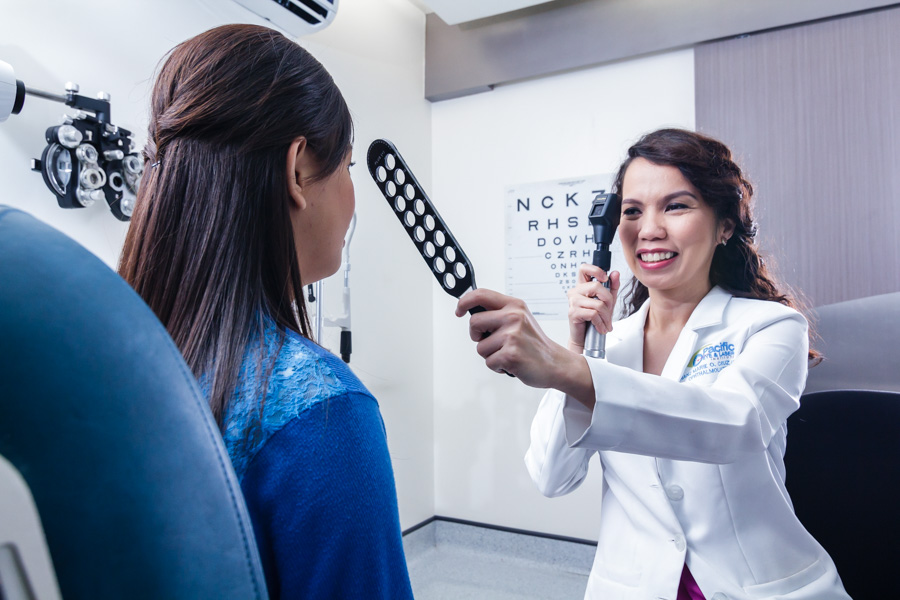The ophthalmologists and optometrists at Peregrine Eye & Laser Institute (PELI) provide high-quality, comprehensive services including general eye check-up and routine eye examination.
We recommend general eye examination on a regular basis for everyone to check your vision and the health of your eyes. A comprehensive eye examination checks your eyes’ refraction (whether you need glasses or not) and screens you for any symptoms that may lead to eye disease such as Cataract, Glaucoma, Lazy Eye, Diabetic Retinopathy and age-related Macular Degeneration.

Addressing Common Comperehensive Eye Examination Questions
A comprehensive eye examination is a thorough evaluation of your eye health and visual system conducted by an optometrist or ophthalmologist. It involves various tests and assessments to assess your vision, identify any eye conditions or diseases, and determine the need for corrective measures such as glasses or contact lenses.
It is generally recommended to have a comprehensive eye examination every 1-2 years, depending on your age, overall health, and any specific eye conditions or concerns. Children, adults, and seniors may have different frequency recommendations, so it's best to consult with your eye care professional for personalized advice.
During a comprehensive eye examination, your eye care professional will typically perform a series of tests including visual acuity assessment, refraction, intraocular pressure measurement, examination of the anterior and posterior segments of the eye, and additional tests based on your specific needs. These may include dilation of the pupils, visual field testing, and imaging tests.
Visual acuity assessment measures the sharpness and clarity of your vision. It is crucial in determining if you have any refractive errors like nearsightedness, farsightedness, or astigmatism, which can be corrected with glasses or contact lenses. Visual acuity testing also helps identify any potential vision problems or conditions that may require further evaluation.
Refraction is the process of determining the appropriate prescription for glasses or contact lenses. It involves assessing how light bends as it passes through your eyes using a series of lenses. Refraction helps determine if you have any refractive errors and determines the power of lenses needed to correct them, resulting in clearer vision.
Intraocular pressure measurement is done to screen for glaucoma, a condition characterized by increased pressure within the eye. High intraocular pressure can damage the optic nerve and lead to vision loss. By measuring this pressure, your eye care professional can identify potential signs of glaucoma and initiate appropriate treatment if needed.
Examining the anterior (front) and posterior (back) segments of the eye allows your eye care professional to assess the overall health of your eyes. This examination helps detect various eye conditions or diseases, including cataracts, macular degeneration, diabetic retinopathy, and other retinal abnormalities.
Comprehensive eye examination can sometimes detect other health conditions beyond eye problems. The eyes are unique in that they can provide valuable insights into a person's overall health. During an eye exam, an optometrist or ophthalmologist examines not only the visual acuity and eye health but also the structures of the eye.